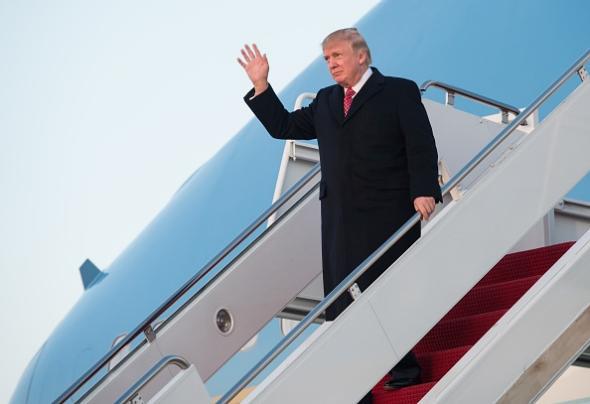President Trump has signed a new executive order baning travelers from several Muslim-majority countries from entering the U.S., the White House has announced. Trump is not speaking publicly about the order and no members of the press were present for the signing, but Secretary of State Rex Tillerson, Attorney General Jeff Sessions, and Homeland Security Secretary John Kelly gave brief remarks about it at a press conference.
Details that have carried over from the first ban, which was signed Jan. 27 and blocked via restraining order by a federal judge on Feb. 3:
- Individuals from the identified countries are banned for 90 days.
- All refugees are banned for 120 days.
Key differences between the new ban and the first one:
- The new ban covers travelers from Sudan, Syria, Iran, Libya, Somalia, and Yemen but not from Iraq. Tillerson says that improved vetting procedures involving Iraqis—many of whom work closely with or for the U.S. military—were developed in recent weeks.
- The new ban does not ban Syrian refugees indefinitely.
- The first ban went into effect immediately after being signed. The new ban goes into effect March 16.
- The new ban will not apply to anyone who already holds a green card or a valid U.S. visa or has been granted official refugee or asylum status. (Green cards weren’t addressed specifically in the first order but many green card holders were initially prevented from re-entering the country after it was signed.)
- The new ban does not specify that members of minority religions will be given preferred treatment when refugee admissions are resumed.
The latter two items seem designed to make the order more judicially defensible by eliminating concerns about religious favoritism and due process rights for existing visa/green-card holders. (The new order explicitly revokes the first one, which means that—contrary to Trump’s earlier statements—the administration will not pursue a reinstatement of the first ban.) The ACLU has already promised to challenge the new order in court; one avenue it may pursue might involve challenging the ban’s necessity as an urgent matter of national security by noting that multiple press reports have said its announcement was delayed by several days so that the president could bask in positive press coverage of his Tuesday address to Congress.
